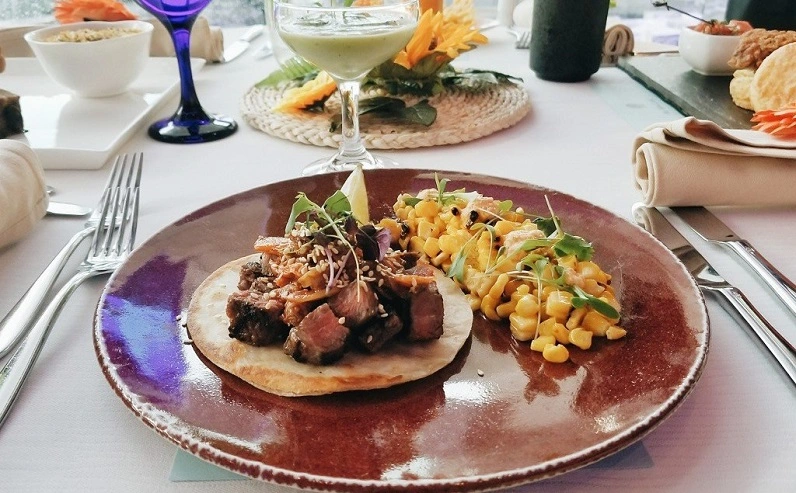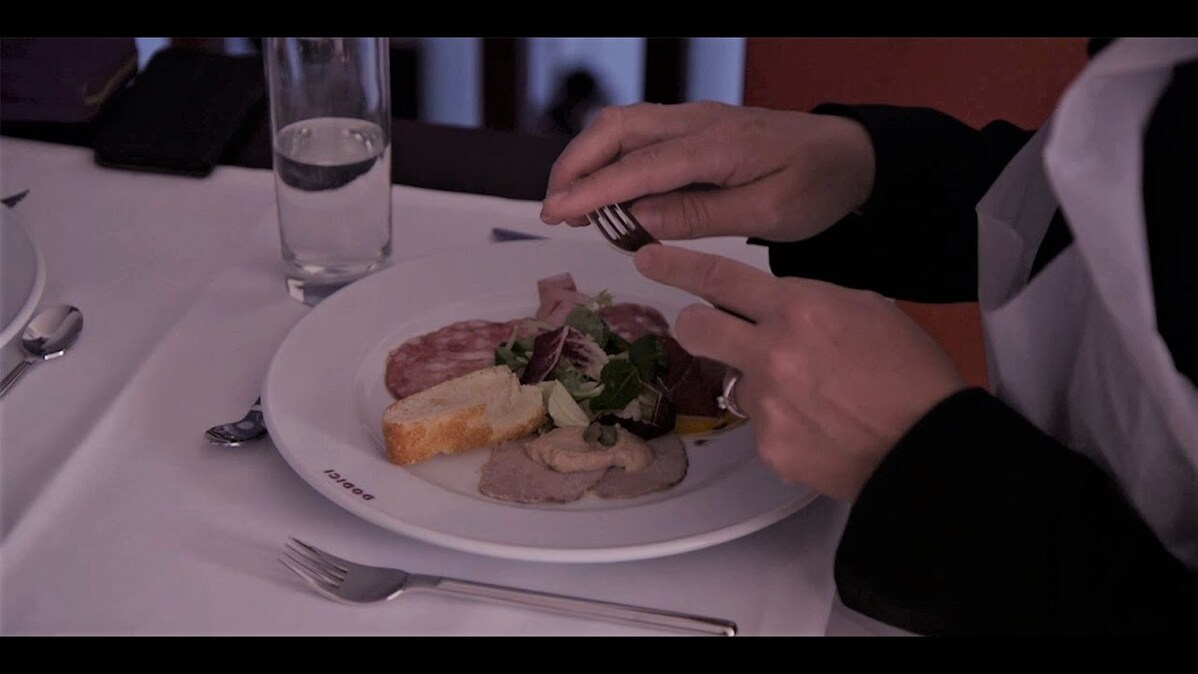For American chef Christine Hà, the life-changing experience of losing sight as a teenager – due to a central nervous system disorder called neuromyelitis optica – came with an unexpected twist. “Vision loss and diagnosis led me to rethink my purpose in life,” she says. After leaving her corporate job and taking some time to grieve, she decided to pursue her newfound love of cooking.
Fast forward to today: Hà is an award-winning chef, author and television personality known as “The Blind Cook.” Hà, who owns The Blind Goat, a restaurant in her native Houston, Texas, is also a prominent advocate for the visually impaired.
On October 23, 2019, Hà will participate in a unique Dine in the Dark event for policymakers and politicians at the United Nations (UN) in New York City. Hosted by the Global Coalition on Aging in partnership with the National Council for the Blind of Ireland, Lighthouse Guild and the International Agency for the Prevention of Blindness, with support from Novartis, the event is meant to increase awareness of vision impairment while inspiring policy change. Hà will design the menu and deliver remarks to attendees.
I’d like to have at least one person come out of the event with a greater appreciation of our sense of sight and what we’re doing in this world to promote eye health. Everyone has the means to do something to advance the cause.
In a recent interview, she discussed this event and shared insights from her life as a busy professional in a sighted world.
At Dine in the Dark events, people with sight put on blindfolds to eat a meal. How can they benefit from this experience?
As someone with vision impairment, I appreciate that Dine in the Dark puts sighted people in our shoes and makes them aware of the types of challenges we come across on a daily basis. For example, how do you find your wineglass? How do you cut your meat with a sharp knife?
What impact do Dine in the Dark events have on participants?
I’ve noticed that sighted diners are often surprised by what they’re eating; they think it’s one thing, but it’s really another. They get a new appreciation of how much they rely on sense of sight, but at the same time, it forces people to hone in on their other senses to enjoy the food. It lets you experience something in a more freeing way.
Aside from a different experience with food, is there anything else you think these types of dinners can teach us?
Often I think people are uncomfortable. There’s a lot of giggling, which is a reaction of their nerves. They feel scared, maybe like they are the only one with the blindfold on. My husband notices that before the blindfolds are on, everyone is very chatty. Then the minute the blindfolds go on, people stop talking.

What is your goal for the UN Dine in the Dark event? What do you hope politicians and policymakers will come away with?
I’d like to have at least one person come out of the event with a greater appreciation of our sense of sight and what we’re doing in this world to promote eye health. Everyone has the means to do something to advance the cause.
What do you think policymakers can do to help make life easier for people who have visual impairments?
Sometimes it’s frustrating to go about this world with vision impairment because of the way this world is designed. There are so many little challenges for people like me. I want to raise awareness of the need to become a world that’s more inclusive in every way possible.
What’s the best help a sighted person can give a visually impaired person in the workplace?
I’ve had to teach my kitchen staff that they have to give me verbal cues if they’re going to move my knife. They know to take my hand and orient me, saying, “Here’s your cutting board, here’s your cornstarch, here’s your knife with the blade pointed away.”
 VIDEO
VIDEO
How does it feel to have to rely on others to achieve the standards you set for your restaurant?
I’m a perfectionist, so losing my vision has forced me to be more dependent on people, to learn to let go of control – which is a good thing. When you run a business, you need to let your staff figure things out and not be a micromanager.
How do you feel about strangers trying to help you navigate your day in or outside the kitchen?
When someone asks you if you need help, that’s perfectly fine. Sometimes people worry they will make a person feel needy. But it’s perfectly fine to offer your help. Most of the time if I’m looking lost and someone offers to help me, I’m grateful.



